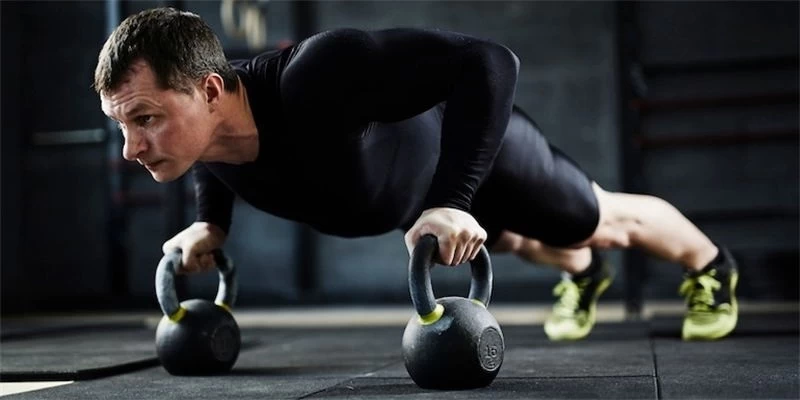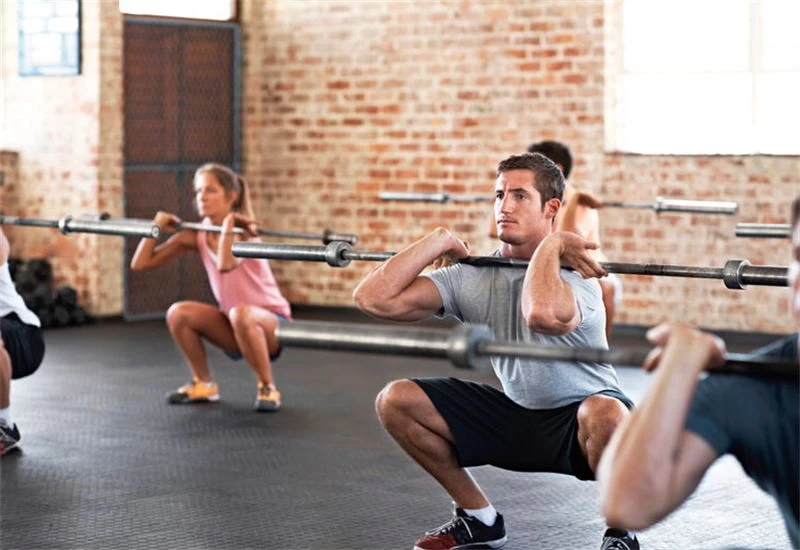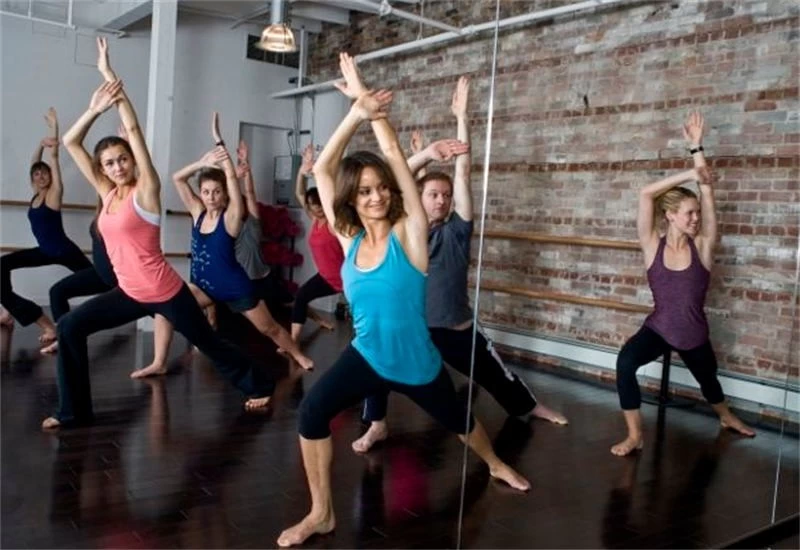Women are constantly bombarded with information on how to get fit and lose weight, and there is no time when this is more apparent than the summer.
Not only are we supposed to be "beach-body ready" but we're also supposed to master our workout techniques.
And if you're just starting to dip your toes into the fitness world for the first time, it can be overwhelming.
If you don't know what you're doing — whether at the gym, in a class, or at home — you probably won't get the results you're looking for, and can even injure yourself.
To help you navigate getting fit, we talked to Trevor Pickett, a personal trainer and fitness instructor, about common exercise myths you should be aware of before you sign up for gym .
Myth #1: Go hard or go home
We're often told that in order for a workout to be effective we should exert ourselves until we're exhausted. This is simply not the case, says Pickett.
"This can lead to diminishing returns by not allowing enough recovery," he says. "The person might initially see results because of high-calorie burn, however, they pay for this often with injury."
Instead, he suggests to start slowly, otherwise if you push yourself too hard, too fast, you can hurt yourself.
"It's important to give yourself some time to learn the movement properly before increasing the intensity too much.
"A workout does have to be intense, as long as it does not affect the even more important element of consistency. Sometimes we're not going to be at our best, in which case it might not be worth pushing if we feel off that day. Give yourself permission on those days to back off a bit."
Myth #2: The longer the workout the better
"Most people believe that they must put in hours at the gym to see any noticeable results. This is too bad because it leads them to think they don't have time to work out so they in turn don't work out," says Pickett. "However, there is lots of research to suggest that shorter intense workouts can be just as, if not more, effective than long workouts."
Most people, he says, work out for an hour, but going longer can be "too taxing and impede your body's ability to recover most effectively."
If you want to try a shorter, but still effective, workout, he says it needs to include a warm-up of at least five-to-10 minutes and a cool down of at least five minutes.
You can work out for as short as 30 minutes, but "if you only have 20 minutes then there's no reason you still can't get in an effective workout," he says.
Myth #3: It's all about the numbers
Whether you're trying to lift the heaviest weights or burn the most calories, we often focus on the number we see on the scale. But even though it's good to have goals, working out shouldn't be all about the numbers.
"A lot of times in our workouts we are completely results driven," Pickett says. "This means we have a goal in mind but don't always care about what we might have to sacrifice to get there.
"Being able to squat 400 lbs or run 30 km sounds great but if we do these activities with bad technique the result is marred by the fact that we may permanently injure our bodies to reach it."
Pickett says part of the goal should be that it makes you feel good.
"A good workout plan should not just help you reach quantifiable goals but also give you an improved quality of life," he says.
Myth #4: You only burn calories during the workout
Say you're on the treadmill watching those calorie numbers tick slowly upwards as they're being burned, but by the time you finish your workout, you didn't reach your goal. Bummer, right? According to Pickett, we still burn calories even after we've completed our workout.
"Some people would work their butt off but not hit the number they were hoping for and would get frustrated," he says.
Pickett cites EPOC (Excessive Post-Exercise Oxygen Consumption), which is basically catching your breath.
"If the activity was intense enough we will stay at elevated oxygen consumption for long after our workout (up to 24 hours) and when we have high availability of oxygen it makes it easier for our body to use stored fat for energy.
"We actually burn the majority of our calories during the day doing daily tasks and performing normal bodily functions," he says.
Myth #5: Fit people look the part
In reality, some people who appear slim may not be healthy, and some people who look out of shape could actually kick your butt.
"I feel that in fitness, like anything else, looks can be deceiving," Pickett says. "There is too much put on comparing how we look compared to the apparently fit person... it is worth noting your progress. Can you lift more, run faster, etc.? I've had some clients that see images on magazines or compare the way they look to others at the gym. This becomes dangerous because it can distract and discourage us on our journey to reach our goals."
If there's any one lesson you should remember, whether you're just embarking on your fitness plan, or have been physically active for years, it's that getting and staying healthy is a journey.
"The people who do the best realize that real change takes time. If we try to create too much change too fast it is less likely for that change to be permanent," Pickett says. "With that being said, it's important to recruit help for your journey. Get your friends and friends involved or a trainer if possible."





